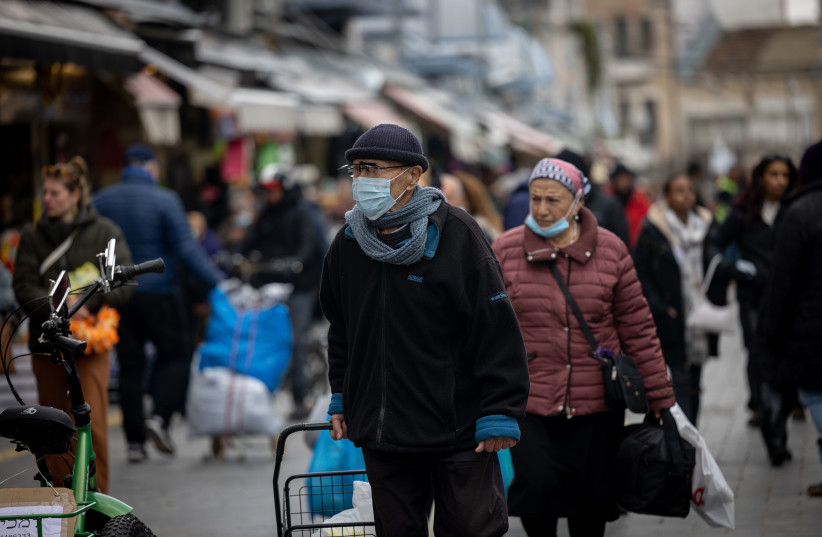If there is one thing that we have learned in the past two years and in the COVID-19 crisis, it is how some things that we think are very basic and natural can be taken away from us, and how much power we, the people, have when we unite to make a difference.
The world of culture was one of the most damaged worlds from this period. This is the world I belong to, as the manager of the Mashu Mashu Theater Group, a professional theater group with a social agenda.
Countless shows were canceled, events were postponed. My livelihood and those of my colleagues – actors, producers, directors, set managers – suffered severely. While worrying about that, we were no less concerned with the thought: Where is the world of culture headed? Like most people, we understood that culture is not a luxury, but is essential to the soul, especially in a period of crisis.
Today, we mark World Theater Day. It is true that there is much to change and be aware of in this world. But, for me it is so important to mark this day and to shout what we are saying for such a long time now: Culture is a basic need and commodity. One that each and everyone of us should have, regardless of our financial means, where we live or how old we are.
It is with this belief that we that we act: a group of talented professionals that moved from the center of Israel to the residential neighborhood of Kiryat Hayovel in Jerusalem. To make art here of all places and to invest in neighborhoods in the social and geographic periphery of Israel.
Together with the Shahaf Foundation and their Neighborhood in Change enterprise, we initiated a project called Let’s Meet in the Park. We offered neighbors a theater show of their choice, right outside their apartment, in a park or in the building yard. The residents also had to be active – inviting all the neighbors and adding other activities to the event. During the second COVID-19 wave, we produced some 20 such events together with residents.

From a show in the park to interactive online Zoom shows to a festival in the local parking lot we didn’t skip a possible stage. With the aim of making culture accessible to all, to cheer up as many people as possible, to maintain some routine, we used, improvised and made all the stages that we could. We haven’t stopped doing, even when we finally came back to the more typical stages in halls and theaters.
So yes, we managed to stay open during the last two years and even provide some livelihood to artists. But, for most of my colleagues it was not the case and they were invisible to the state, which did not support them.
Those who choose theater professions have a certain roll in the world – to be the ones observing the world and telling the rest of us what it is they see in a way we can understand or feel. Art is the place where it is okay to feel, be weak or fall apart while reading a poem. Artists are a fundamental part of society and they have a roll just like doctors, traders, lawyers, housekeepers and high-tech people do. We call out the truth, point at the painful places in the soul and in society and bring the community together, around the cultural fire.
Because of this, I am committed and compelled to call upon the state to wake up, now, and to invest ongoing substantial budgets that will allow us to not only survive the next crisis, but also to allow thousands of my fellow artists and creators in Israel to do our job to sustain and raise the public morale.
This commitment also pushes me and others like me forward to create, to prove what hundreds of thousands of people who come to theater are already proving, that theatre will not pass from this world, even if it is the world of TikTok, Instagram and Netflix.
I believe that it is time for the Ministry of Culture to increase its investment in theater groups in the social-geographic periphery, which are talented and professional, to ensure our sustainability. Currently, most of the resources go to Tel Aviv. Are there no worthy artists in the periphery, or are they not getting the needed support to make worthy art? Which is the cause and which is the effect?
In 2022, coming out of a long crisis period, it is time we realize that local theater groups are not a strange hybrid creature, just because they choose to be active in the community and make a difference – it makes them relevant and significant in performing the ministry’s real job. It is time that more groups from the periphery be considered fellow theater groups, which will allow them to receive regular sustaining budgets needed to create worthy art that as many people as possible can enjoy, regardless of their origin, gender, social standing or where they live, thus reducing gaps in the Israeli society.
The writer is the manager and artistic director of the Mashu Mashu Theater Group.
